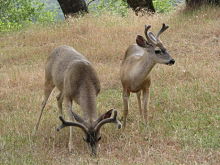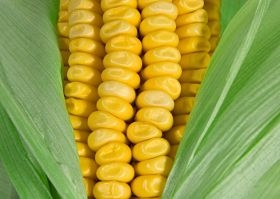Bill McKibben and 350.org Can Magnify and Speed Their Impact
Bill McKibben, leading the international climate campaign 350.org, urged an attentive audience at Natural Products Expo West to make a difference for the future of the planet. Over 5200 demonstrations, which circled the globe in 181 countries on October 24, 2009, show grassroots understanding of the need to reduce atmospheric carbon dioxide to no more than 350 parts per million. The current level of 390 parts per million, rising with no end in sight, spells catastrophe for life on earth as we know it.
The most significant part of the talk was McKibben’s answer to an audience question. One woman asked why 350.org does not include a truly sustainable diet as a critical action item in the campaign. She pointed out that a recent analysis by Worldwatch Institute demonstrates that 51% of greenhouse gases are directly traceable to raising animals for food.

The effect of these native ruminants, in an intact ecosystem, on greenhouse gases is in no way like the impact of cows
The obvious solution to getting at least halfway to the goal of stopping climate change is simple, rapid, and no cost – eat a plant-based diet.
In his response, McKibben acknowledged that factory farming animals is a huge cause of climate change. However, he was not advocating immediate action to change diet. Instead, he advanced the idea that a carbon tax, once enacted, would make factory farmed animals so expensive that meat would be priced out of the range of most people. This would happen because people in the animal foods business would have to pay the “true cost” of their carbon impact.
McKibben also theorized that “grass fed cattle” could actually be helpful in reducing greenhouse gases. The theory is that, as large animals roam and trample vegetation into the soil, the ground itself stores carbon and keeps it from (more…)






